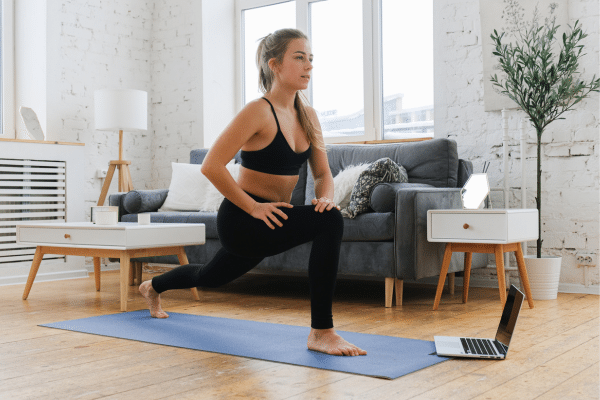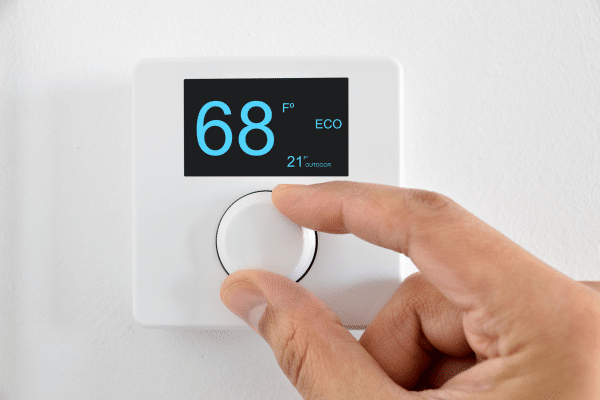Sleep is a crucial component of overall health, acting as a foundational element that affects mood, cognitive function, and physical well-being. Ensuring a good night’s sleep is essential, yet many struggle to achieve it consistently. This guide delves into practical strategies designed to enhance sleep quality. By adhering to a sleep schedule, engaging in regular exercise, and maintaining a cool bedroom environment, individuals can significantly improve their sleep and, by extension, their quality of life.
Contents
Make A Sleep Schedule And Stick With It

Consistency is key when it comes to improving sleep quality. Establishing a sleep schedule that includes fixed times for going to bed and waking up helps regulate the body’s internal clock, leading to easier sleep onset and more restful nights. Sticking to this schedule, even on weekends, reinforces the natural sleep-wake cycle, making sleep more restorative. The challenge often lies in resisting the temptation to stay up late or sleep in, which can disrupt this rhythm and undermine sleep quality.
Implementing a strict bedtime routine can further enhance the benefits of a sleep schedule. Activities such as reading a book, meditating, or listening to calm music before bed can signal to the brain that it’s time to wind down. Avoiding stimulating activities like intense exercise or work-related tasks close to bedtime can also prevent delays in falling asleep. Over time, the body begins to associate these pre-sleep rituals with sleep itself, making it easier to transition from wakefulness to sleep.
Exercise Regularly

Physical activity plays a significant role in promoting restful sleep. Regular exercise, particularly aerobic activities like jogging, swimming, or cycling, can help to expedite the onset of sleep and extend its duration. By incorporating exercise into the daily routine, individuals can enhance the depth of sleep and awaken feeling more refreshed. The timing of exercise is important; engaging in vigorous activities too close to bedtime can lead to increased alertness and make falling asleep more difficult.
The relationship between exercise and sleep is bidirectional; just as regular physical activity improves sleep quality, good sleep enhances physical performance. When the body is well-rested, it is more capable of performing at a higher level, leading to improved workouts. Moreover, the stress-relieving properties of exercise can alleviate anxiety and create a more conducive mental state for sleep, helping to break the cycle of sleeplessness and inactivity.
Keep Your Room At A Cool Temperature

The temperature of the sleeping environment significantly affects sleep quality. A cool bedroom, typically around 60-67 degrees Fahrenheit (15-19 degrees Celsius), can facilitate the natural decline in body temperature that occurs during sleep, leading to quicker sleep onset and reduced night-time awakenings. An environment that is too warm or too cold can disrupt this natural thermoregulation process, leading to restless sleep and frequent wakefulness.
In addition to adjusting the thermostat, using breathable bedding and sleepwear can help maintain a comfortable sleep temperature throughout the night. The use of fans or air conditioning during warmer months, and perhaps a warmer duvet in cooler times, can also aid in achieving an optimal sleeping environment. Ensuring good air circulation in the bedroom can further contribute to a restful night’s sleep by maintaining a fresh and oxygen-rich atmosphere.
Eat Healthy Foods

Diet plays a pivotal role in regulating sleep patterns. Consuming a balanced diet rich in fruits, vegetables, lean proteins, and whole grains can improve sleep quality. These foods contain essential nutrients and minerals that aid in the production of sleep-regulating hormones like melatonin. Conversely, heavy or large meals late in the evening can disrupt sleep, causing discomfort and indigestion, leading to sleep disturbances.
It is advisable to avoid caffeine and sugar close to bedtime, as they can stimulate the nervous system and delay sleep onset. Instead, opting for a light snack that includes tryptophan, an amino acid that promotes sleep, like turkey or bananas, can be beneficial. Ensuring hydration throughout the day while avoiding excessive liquids before bed can also prevent sleep interruptions for bathroom visits, contributing to a better night’s rest.
Avoid Watching TV Or Using Electronics In Bed

The use of electronic devices such as TVs, smartphones, and tablets before bedtime has been shown to interfere with the ability to fall asleep. The blue light emitted from these screens can inhibit the production of melatonin, the hormone that signals the brain it’s time to sleep. Creating a technology-free zone in the bedroom can therefore significantly improve sleep quality, helping the mind to unwind and prepare for rest.
Establishing a relaxing pre-sleep routine, like reading a book or listening to calming music, can replace the use of electronics and aid in falling asleep more easily. This routine can signal to the brain that it is time to wind down, making it easier to transition into sleep. Additionally, charging devices outside the bedroom can reduce the temptation to use them before sleep, further enhancing the quality of rest.
Take A Relaxing Bath Or Shower

A warm bath or shower before bed can be incredibly beneficial for improving sleep. The rise and subsequent fall in body temperature can mimic the natural temperature drop that signals the body it’s time to sleep. This can not only help in falling asleep faster but also in achieving deeper sleep. Adding elements like Epsom salts or lavender oil to bathwater can enhance the relaxation effect, making it easier to unwind before bed.
Besides the physiological benefits, a bath or shower serves as a psychological signal to the body that the day is ending and it’s time to relax. This ritual can be a part of a broader pre-sleep routine that might include other relaxation techniques, such as deep breathing or meditation, to further prepare the body and mind for sleep.
The Bottom Line
Achieving a good night’s sleep is essential for overall health and well-being, and it is attainable through the implementation of effective sleep hygiene practices. By making adjustments to the sleeping environment, dietary habits, evening activities, and pre-sleep routines, individuals can enhance both the quality and duration of their sleep. It is important to experiment with different strategies to discover what works best on a personal level. Ultimately, the effort to improve sleep is an investment in one’s health, offering significant returns in terms of energy, mood, and productivity.